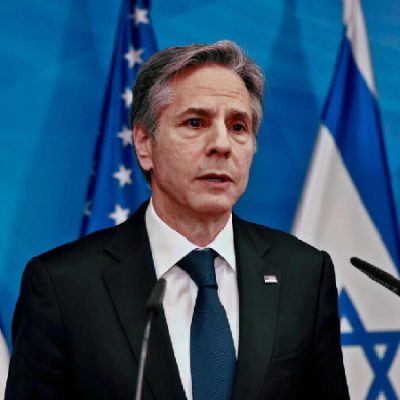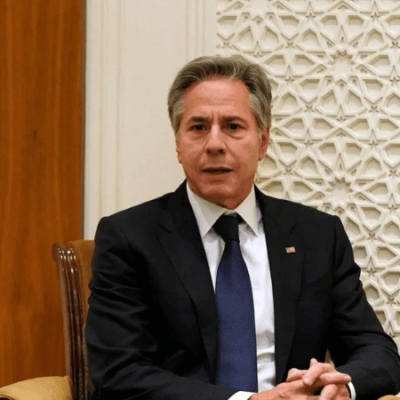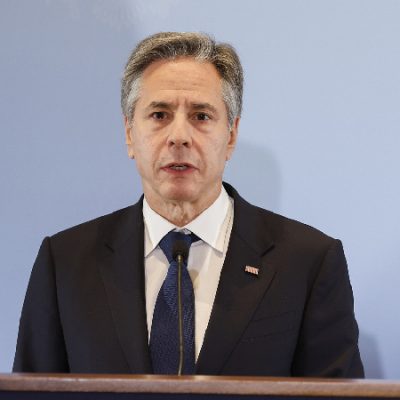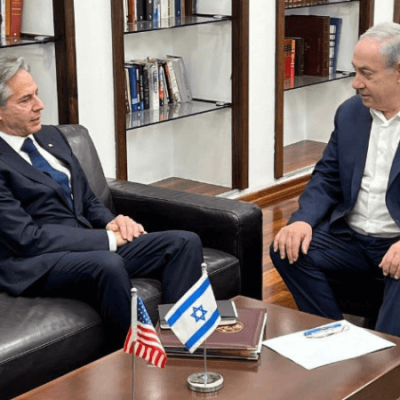U.S. Secretary of State Antony Blinken’s High-Stakes Middle East Visit: A Comprehensive Overview
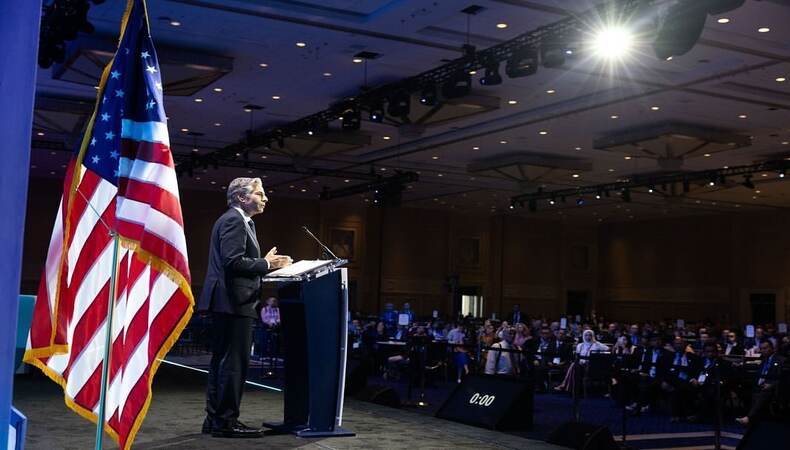
Arriving in Tel Aviv on Sunday, U.S. Secretary of State Antony Blinken was on a high-stakes Middle East tour meant to boost diplomatic efforts to reach a ceasefire accord thereby stopping the violence between Israel and Hamas. Since the battle started in October, Blinken’s tenth visit to the area marks here. To forward negotiations for a truce and the release of captives kept in Gaza, the Secretary of State is supposed to have important conversations with Israeli officials including Prime Minister Benjamin Netanyahu.
Strategic Goals and Itinerary
After his discussions in Israel, Blinken will visit Egypt in line with his regional diplomatic assignments. The visit emphasizes a deliberate attempt to negotiate a ceasefire agreement at a pivotal point in the continuous bloodshed. A top Biden administration official claims that the conversations represent a turning point of sorts. The source underlined Blinken’s objective is to underline the need of completing the agreement and to solve the issues hindering development. The person said, stressing the need of a quick conclusion to the conflict: “We think this is a critical time.”
Escalation in Humanitarian Crisis
Notwithstanding massive mediation attempts by Egypt, Qatar, and the United States, the conflict has persisted unabatedly leading to a catastrophic humanitarian disaster. Six children among at least twenty-one others were killed in the central town of Deir Al-Balah by a terrible bombing on Sunday. Among the casualties were a mother and her six children, apparently slain in an Israeli airstrike on their house. Claiming to have killed 20 Palestinian terrorists in the process, the Israeli military has alleged that the operation aimed at rocket launchers deployed against Israel from Khan Younis, a scene of fierce fighting.
The continuous fighting has worsened the humanitarian situation in Gaza, where conditions and displacement have gotten ever more severe. Deir Al-Balah resident Tamer Al-Burai detailed the terrible circumstances families find themselves in as they are driven into ever smaller spaces. Recent directives have drastically changed the extent of allocated “humanitarian areas” to roughly 11% of Gaza’s entire territory, according to the United Nations Office for the Coordination of Humanitarian Affairs, therefore affecting the availability of safe places for people.
Complicating the Ceasefire Negotiations
On October 7, Hamas militants started a massive onslaught on Israel that claimed around 1,200 Israeli lives and kidnapped almost 250 hostages. Israel’s military operation in response has caused great damage in Gaza, according to Palestinian health officials who document nearly 40,000 deaths, largely among civilians. Israel claims that during the fighting, 17,000 Hamas fighters had perished.
According to Netanyahu’s administration, the truce negotiations are “complex,” which reflects their complicated character. Key grounds of dispute center on the conditions for tracking travel between northern and southern Gaza as well as whether Israeli troops should stay in Gaza following a truce. Israel has been reluctant to consent to more than a brief stop in hostilities while Hamas is looking for a complete truce to bring the war to a conclusion.
Diplomatic Challenges and Regional Tensions
The wider regional tensions accentuate the urgency of the negotiations. After the leader of Hamas, Ismail Haniyeh, was killed in Tehran on July 31, Iran has promised reprisal towards Israel. This escalation threat complicates the diplomatic efforts even more since international players try to control and minimize the possibility of more general regional war.
Blinken’s visit Tel Aviv marks a deliberate attempt to handle these several difficulties. The participation of the Secretary of State emphasizes the complex interaction of diplomacy, security issues, and humanitarian concerns defining the present situation. The result of these negotiations will be crucial in defining the future stability of the region and deciding the chances for a long-lasting peace as the world community attentively watches the developments.
Blinken’s objective is essentially a component of a larger diplomatic effort aimed at ending one of the most urgent conflicts of our day. The result of these negotiations will affect not only the current situation in Gaza but also the Middle Eastern geopolitics scene in general.

